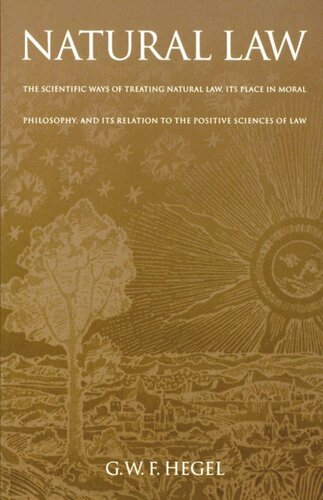

Most ebook files are in PDF format, so you can easily read them using various software such as Foxit Reader or directly on the Google Chrome browser.
Some ebook files are released by publishers in other formats such as .awz, .mobi, .epub, .fb2, etc. You may need to install specific software to read these formats on mobile/PC, such as Calibre.
Please read the tutorial at this link: https://ebookbell.com/faq
We offer FREE conversion to the popular formats you request; however, this may take some time. Therefore, right after payment, please email us, and we will try to provide the service as quickly as possible.
For some exceptional file formats or broken links (if any), please refrain from opening any disputes. Instead, email us first, and we will try to assist within a maximum of 6 hours.
EbookBell Team

0.0
0 reviewsOne of the central problems in the history of moral and political philosophy since antiquity has been to explain how human society and its civil institutions came into being. In attempting to solve this problem philosophers developed the idea of natural law, which for many centuries was used to describe the system of fundamental, rational principles presumed universally to govern human behavior in society. By the eighteenth century the doctrine of natural law had engendered the related doctrine of natural rights, which gained reinforcement most famously in the American and French revolutions. According to this view, human society arose through the association of individuals who might have chosen to live alone in scattered isolation and who, in coming together, were regarded as entering into a social contract.
In this important early essay, first published in English in this definitive translation in 1975 and now returned to print, Hegel utterly rejects the notion that society is purposely formed by voluntary association. Indeed, he goes further than this, asserting in effect that the laws brought about in various countries in response to force, accident, and deliberation are far more fundamental than any law of nature supposed to be valid always and everywhere. In expounding his view Hegel not only dispenses with the empiricist explanations of Hobbes, Hume, and others but also, at the heart of this work, offers an extended critique of the so-called formalist positions of Kant and Fichte.